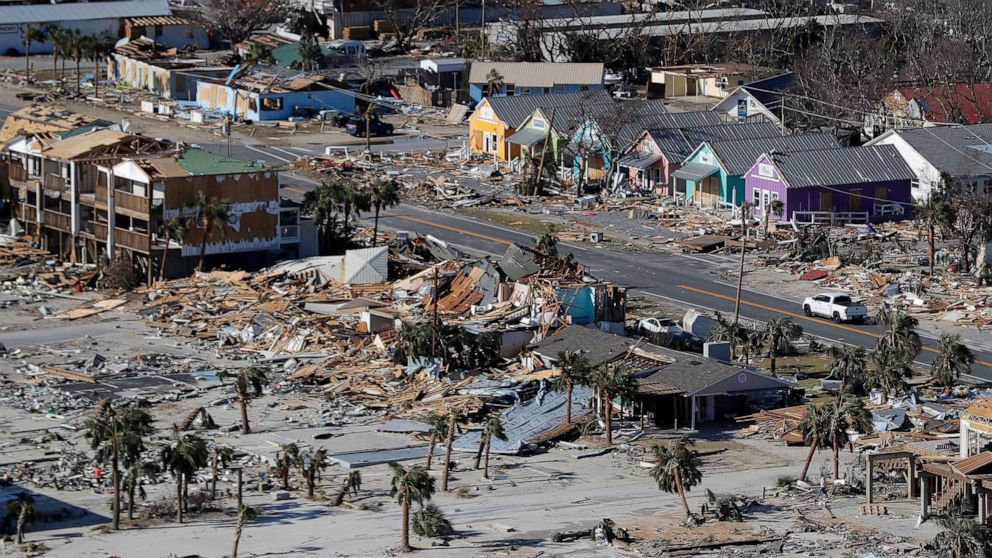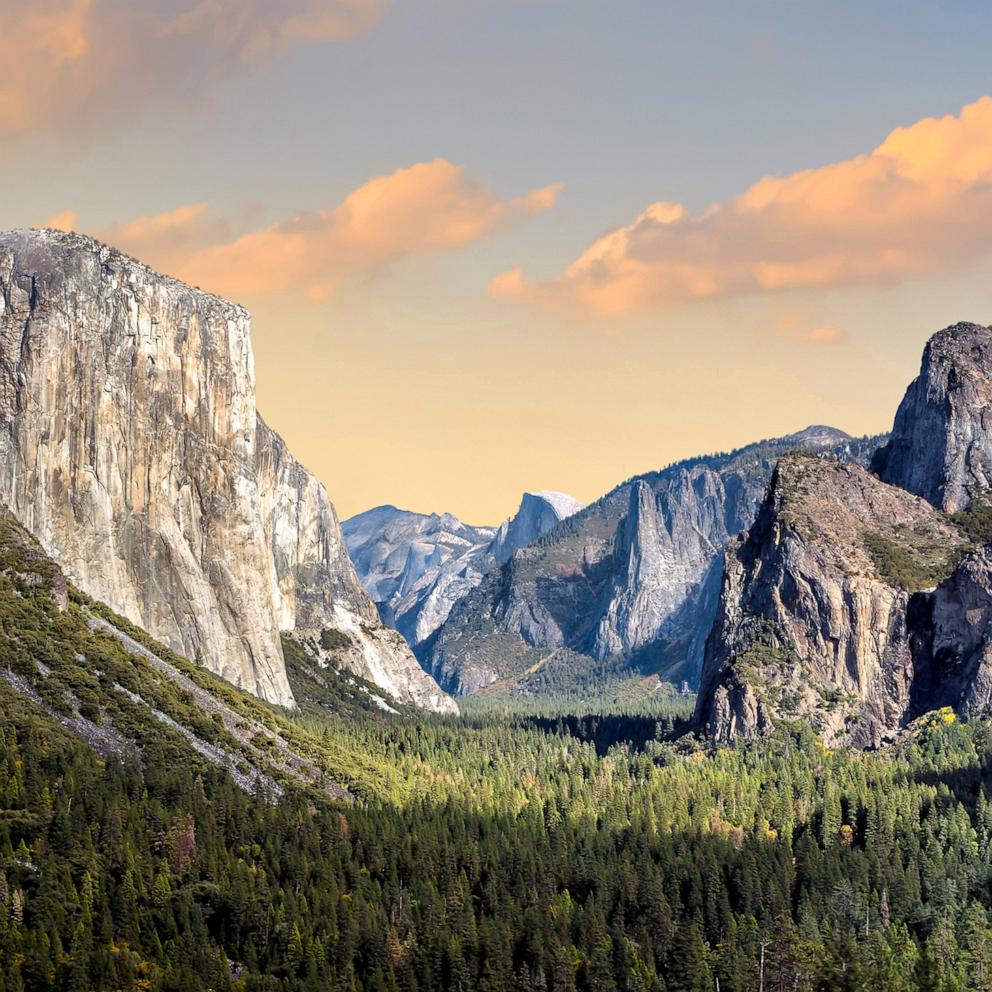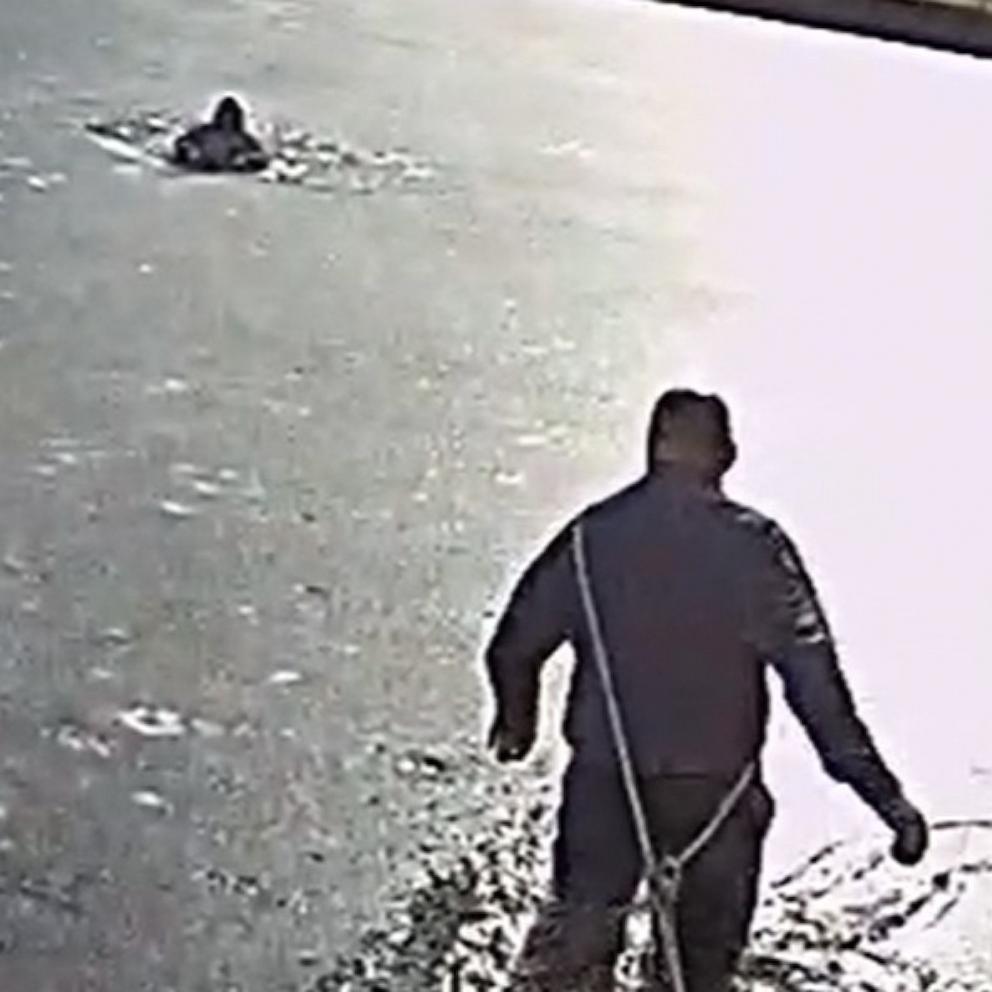Florida residents still recovering and rebuilding 1 year after Hurricane Michael
One year ago on Thursday, Hurricane Michael became the strongest hurricane to make landfall in the United States since 1992 and the second strongest to ever hit the Gulf Coast.
The Category 5 storm killed at least 59 people in the U.S., damaged thousands of homes and structures and left over a million homes without power as it made landfall near Mexico Beach and Panama City, Florida, before moving through Georgia, Alabama and the Carolinas. One year after the devastating storm, communities are still trying to recover.
Kimberly Kennedy, a Mexico Beach resident and condo manager, has returned home, but she said that the condo building in which her family took shelter is still being repaired. In fact, many buildings and businesses are only now starting to open up, and many of them aren't even permanent.
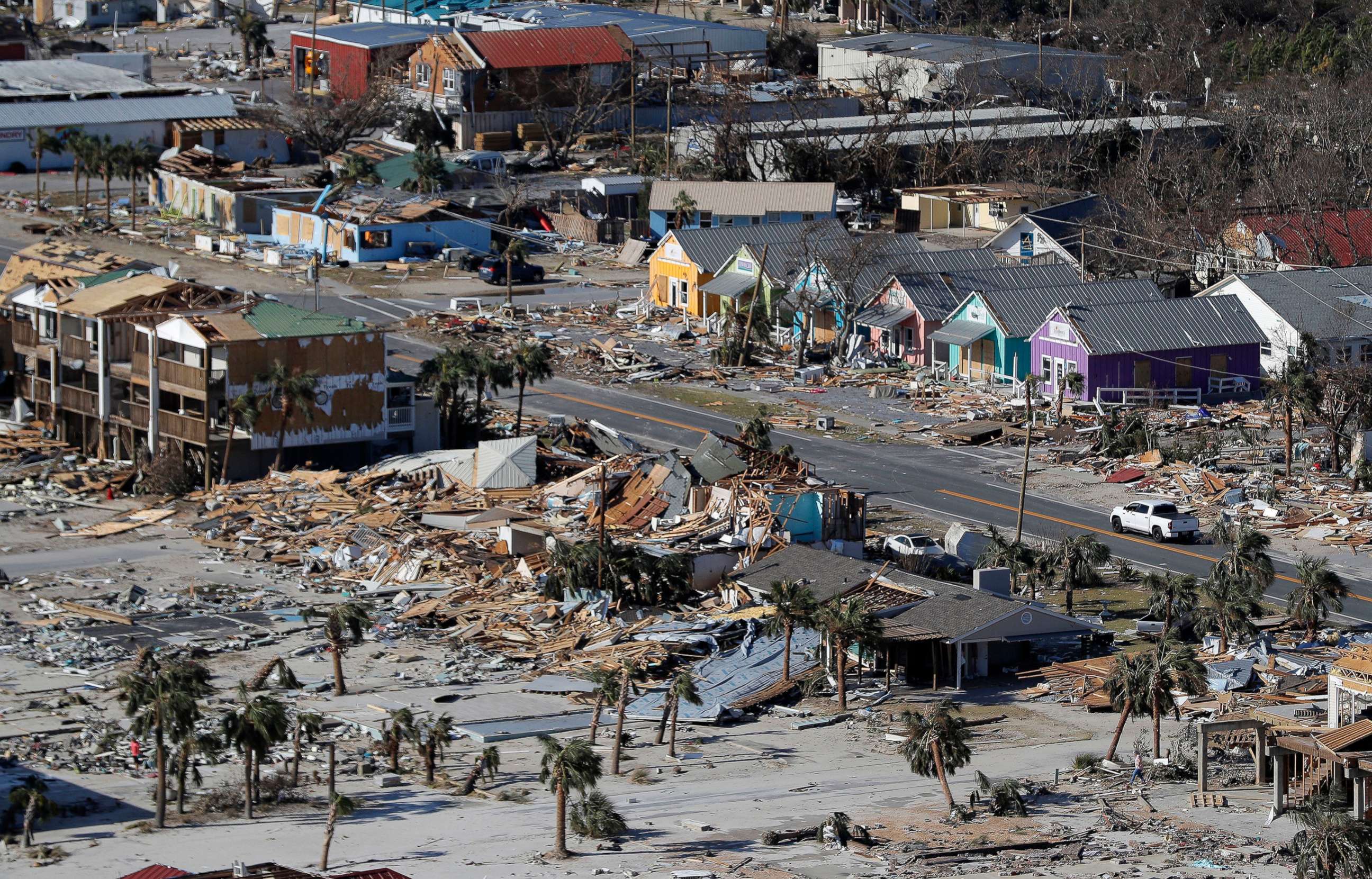
"So, you know, it might be a food truck instead of a restaurant. … There's no homes to live in," Kennedy said, adding that although she would've done some things differently when the hurricane hit, it's made her stronger.
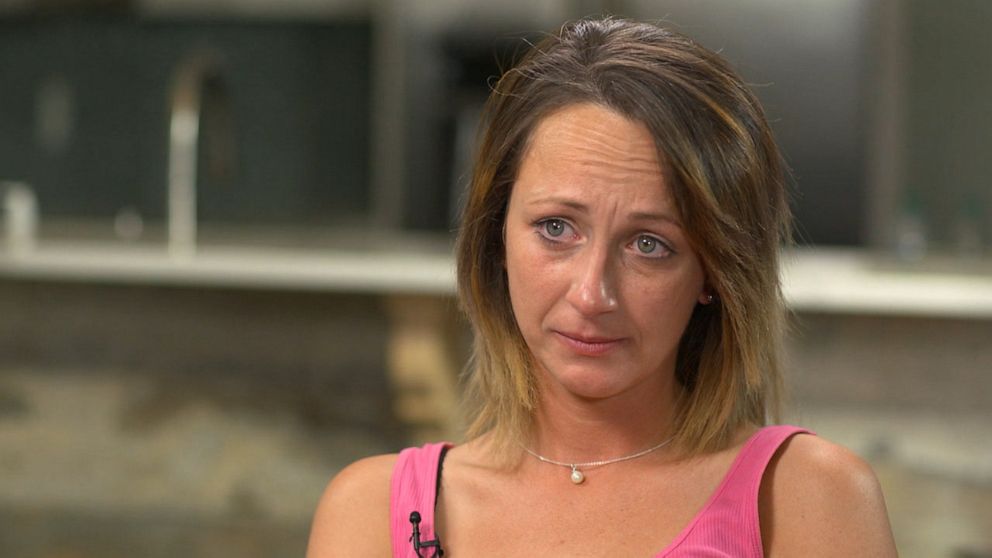
Talia Butcher, of Panama City, survived the storm with her husband by swimming through the storm surge, which reached 14 feet. She credited their survival on a pair of life jackets that kept them above water. Today, she says she still experiences trauma from that day.
"I'm still scared of wind because that's what was taking everything away at that moment in time," Butcher said.
When ABC News first met Butcher, the day after the storm, her house had been destroyed and she was trying to get in touch with her parents to let them know her and her husband were safe. A year later, she's living in a trailer provided by FEMA.
"I'm very blessed to have it by all means," Butcher said. "[At] least I have something to sleep [in] at night. But I still want my own home again."
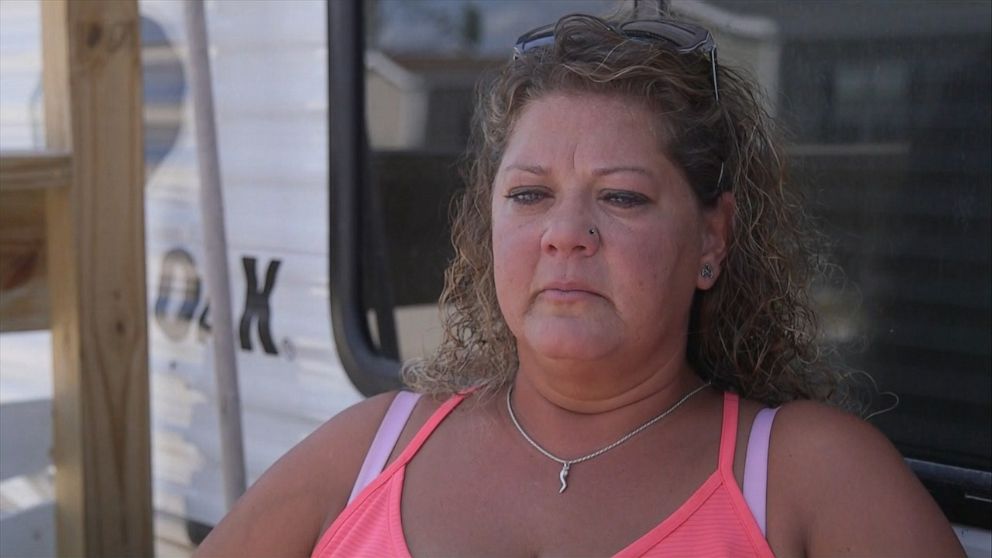
For Butcher, the loss of her home has only been compounded by the loss of her husband, who died of cancer in September.
"I'm starting from scratch all over again, and I think that's what's even harder," she said. "I don't have Robbie, my little soulmate, to keep pushing me. My niece tells me every day, 'Aunt Talia, it's going to be OK.'"
Walking through Panama City, storefronts are still boarded up. Mobile homes and trailers, despite some being heavily damaged, are still occupied. And many people who are looking for new places to live must balance keeping a job with trying to find new places to live, according to Ross Whitley, chief meteorologist for ABC News Panama City affiliate WMBB.
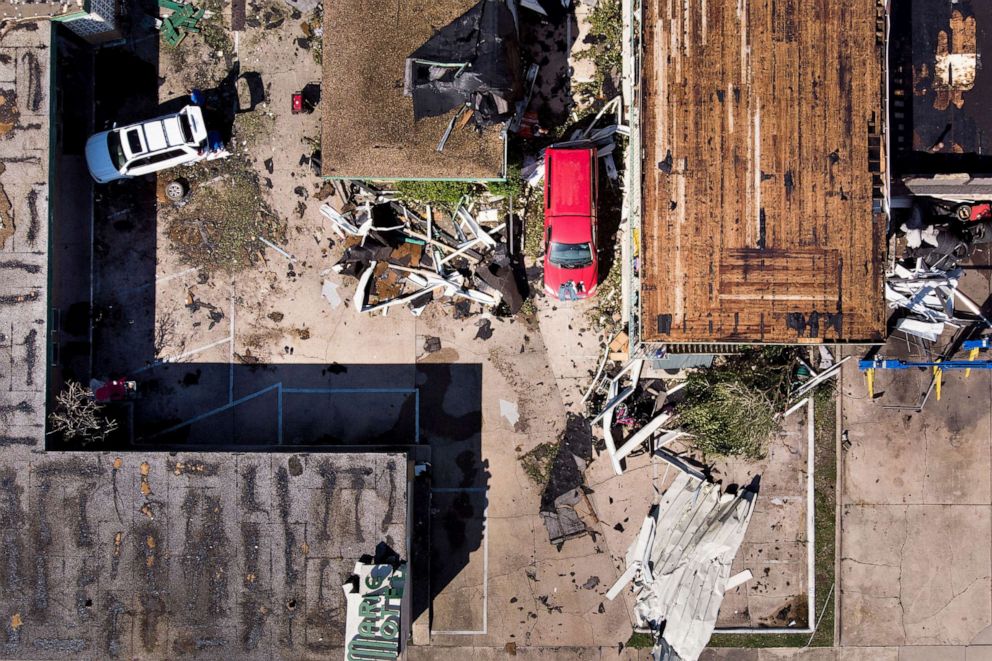
Amid the destruction, however, there is hope. Shelly Summers, who lives about an hour away from Panama City in Youngstown, has opened up her backyard to survivors of the storm. She said that after she saw tent cities popping up on the news, she decided to open up her own.
The community has lost itself and a lot of people feel [like] they don't matter," Summers said. "They do to me. They do to my husband. They do to my daughter and they do to everybody here."
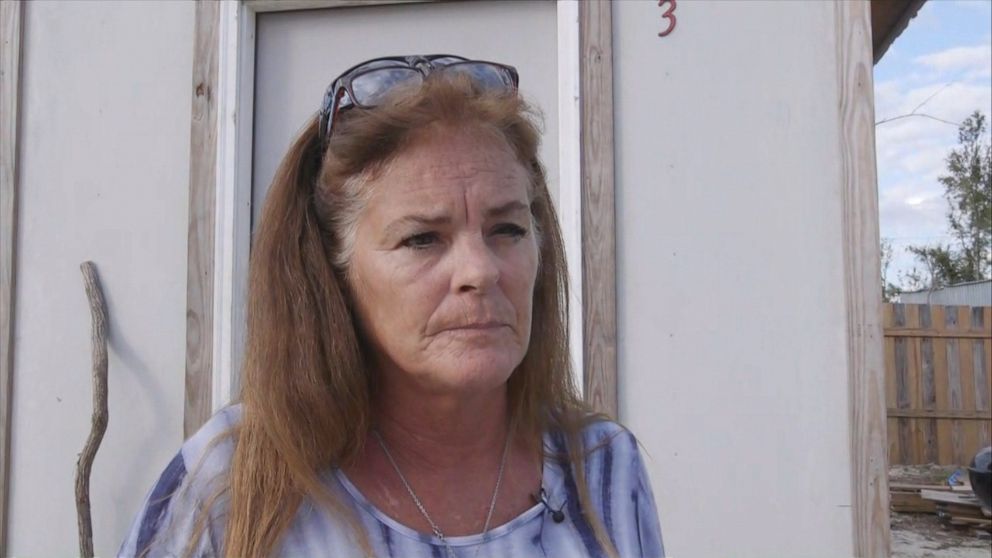
Summer said she has housed over 100 people in her backyard to date. One of those people is Georgia Richter, who said she sought shelter at Summers' home after bouncing from one hotel to another following the hurricane. Eventually, she said, it became too expensive.
"I was stable before the hurricane hit, and now I'm just trying to survive and get through the day," Richter said. "There needs to be more housing that's affordable. ... It was a pretty poor economy before the storm and now it's gotten even worse, and I think it's a struggle for everyone right now."
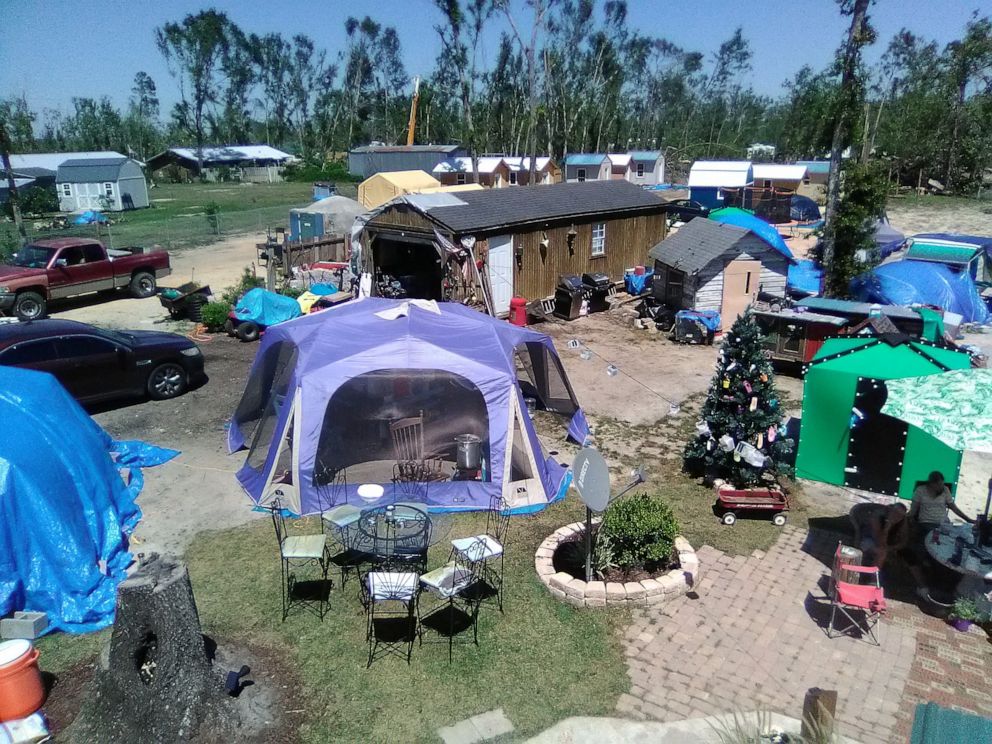
Whitley said that despite the challenges his community faces, he's hopeful that eventually the city will recover and people will come back to live there. Kennedy felt the same but also mentioned that they still need help.
"We're still recovering; don't forget about us," she said. "Hello, we're still down here. We might be little, but we are still here and we still matter."
